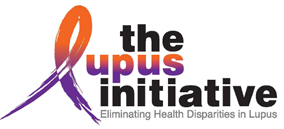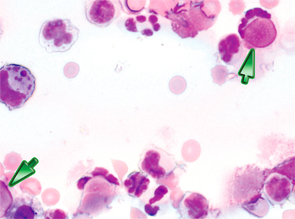 The Lupus Initiative (TLI) has been an emergent creation inside the American College of Rheumatology (ACR) for the past six years. In 2009, the Office of Minority Health and Office of Women’s Health (now called the Office of Health Disparities) solicited an application from the ACR to develop resources for educating non-rheumatologists, both in training and in practice, to recognize the signs and symptoms of lupus and make appropriate referrals. The ACR created TLI to carry out this task, which it has done under the guidance of a national consortium of lupus and health disparities experts from academia, research, clinical practice and patient services.
The Lupus Initiative (TLI) has been an emergent creation inside the American College of Rheumatology (ACR) for the past six years. In 2009, the Office of Minority Health and Office of Women’s Health (now called the Office of Health Disparities) solicited an application from the ACR to develop resources for educating non-rheumatologists, both in training and in practice, to recognize the signs and symptoms of lupus and make appropriate referrals. The ACR created TLI to carry out this task, which it has done under the guidance of a national consortium of lupus and health disparities experts from academia, research, clinical practice and patient services.
What began as a one-year grant to develop educational resources aimed at eliminating racial-, ethnic- and gender-related health disparities in the diagnosis and treatment of lupus, has evolved to become a robust platform to disseminate lupus-related research and training. These projects, led by our members and a national network of lupus experts, have produced resources that are now used nationally in medical schools, other health professions schools, hospitals and private practices.
Six years later, TLI has evolved into Collaborative Initiatives, whose goal is to leverage the models, programs and partnerships developed for educating non-rheumatologists about lupus to the benefit of our members. These resources are available to all rheumatologists and health professionals and currently include multiple CME/CE activities, PowerPoint presentations, case studies (both traditional and interactive), a video reference library, lectures and more. Further, TLI is developing six new interactive cases for students and trainees. TLI’s expanding portfolio of resources can help you, as a medical professional, foster a deeper dialogue with your patients about their care.

Lupus erythematosus cells.
Image Credit: vetpathologist/shutterstock.com
National Attention
A foundational impetus for the growth of this initiative is the increased national attention on health disparities and treatment of chronic diseases. It is well known that lupus disproportionately affects women and minorities, and recent studies show lupus could be the most common chronic disease among African American women and that another minority, American Indians/Alaska Natives, could have the highest lupus-related mortality rates.1,2 Because of the success of TLI, the National Association of Chronic Disease Directors (NACDD) and the Lupus Foundation of America selected the ACR to be a contributor to the National Public Health Agenda for Lupus, set for release in September 2015.
This agenda is the product of collaboration among more than 45 representatives from public health, physicians, national lupus associations, health insurers and persons with lupus. It will provide a “comprehensive public health approach to address lupus, which can supplement complementary efforts in lupus biomedical research and clinical care.”3
